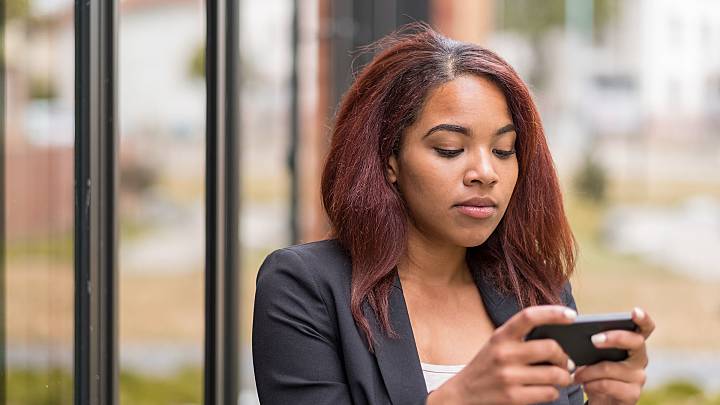Coming Off the Pill

Medically reviewed by
Dr Kathryn BasfordLast reviewed: 28 May 2019
What to expect, and when your period should come back

Key takeaways
It can take around 3 months for your periods to return to a normal cycle.
If your period doesn’t return a month after coming off the pill – take a pregnancy test
If you’re planning to come off the pill soon, there are a few things you should be aware of. It can take around 3 months for your periods to return to a normal cycle.
You may also get side effects like changes in your weight and mood, breakthrough bleeding, and irregular periods for a few months after you come off the pill. If you’re not planning to get pregnant, you should start using another form of contraception as soon as you come off the pill.
When can I expect my period to come back?
When you come off the pill, you can expect your period in about 2 to 4 weeks time. Your first period is called a ‘withdrawal bleed’ and the next one would be the start of your natural cycle.
Women can have different experiences with their cycles depending on other factors like weight, stress, diet, and exercise.
If your period doesn’t return a month after coming off the pill, we would suggest that you take a pregnancy test to confirm that you are not pregnant. If this is negative, it is possible for your periods to take up to 3 months to return to normal. At this point it would be a good idea to see your GP to discuss this further.
In the first 3 months after stopping the pill, your periods will often be irregular, but after this time they’ll usually go back to a normal cycle.

No results found.
Please check your spelling or try another treatment name.
What are the side effects of stopping the Pill?
The pill is a hormonal contraceptive so there will be changes in your hormone levels when you stop taking it. Some of the side effects you may get when coming off the pill include:
- Heavy bleeding and painful periods
- Weight loss
- Losing some of the extra benefits of the pill, like improvements to acne and hirsutism (female facial hair) if you had them while you were on the pill
- Mood swings
- Your period may be irregular at first, but your natural cycle should follow in about 3 months
Can stopping the Pill cause mental health problems?
Different women can react differently to coming off the pill. Some may experience mood changes and other side effects while others will have no issues at all during the process.
Some women have reported side effects of the pill that include anxiety, depression, or mood swings, which improve gradually after they stopped taking the pill.
If you notice that your mental health doesn’t improve after a few months off the pill, or you find your mental health gets worse as you come off the pill, you should visit your GP.
When will you usually be able to get pregnant again?
You can get pregnant as soon as you come off the pill, so if you don’t want to get pregnant you should start using other forms of contraception straight away like condoms. Your GP can give you advice on suitable contraceptive options to use next.
You can start trying for a baby straight away after stopping the pill. However waiting until after you have had a period will make it easier to predict your due date.
What’s the difference between stopping the combined pill and the mini pill?
The process of coming off the combined pill and the mini pill are similar. Your period will take a few weeks to return to a regular cycle and you may notice other changes in your weight and mood over time.
When can I start another brand of pill?
If you want to change to another brand of the contraceptive pill, you should first visit your GP, or message a ZAVA doctor who can give you advice on how to switch.
Ideally, there should be no breaks between pill packs, so you’ll be advised to start the new pill immediately, or the day after you take the last pill of your old pack.
If the new type of pill takes time to start working, you may also be advised to use alternative methods of contraception in the beginning to avoid getting pregnant.
What if I want to start a new kind of contraception?
There are other types of contraception than the pill that have hormones in them and also non-hormonal contraceptives.
If you are changing from the oral contraceptive pill to some other types of contraception, particularly hormonal ones, you may have to use a third type of contraception during the changeover period to avoid getting pregnant. This will depend on where in your pill pack you are at the time of changing contraception.
For example, if you are getting the contraceptive implant in the first week of your pill, or in your pill free week, you will be advised to use condoms for the first 7 days to give the implant time to start taking effect.

Dr Kathryn Basford is a qualified GP who works as a GP in London, as well as with ZAVA. She graduated from the University of Manchester and completed her GP training through Whipps Cross Hospital in London.
Meet our doctorsLast reviewed: 28 May 2019
-
NHS (2018). Your contraception guide. When will my periods come back after I stop taking the pill. [online] Available at: https://www.nhs.uk/conditions/contraception/when-periods-after-stopping-pill/ [accessed 29th November 2018].
-
NHS (2018). Your contraception guide. The progestogen-only pill. [online] Available at: https://www.nhs.uk/conditions/contraception/the-pill-progestogen-only/#at-a-glance-facts-about-the-progestogen-only-pill [accessed 29th November 2018].
-
NHS (2017). Sexual and reproductive health services, England 2016-2017. National statistics. [online] Available at: https://digital.nhs.uk/data-and-information/publications/statistical/sexual-and-reproductive-health-services/sexual-and-reproductive-health-services-england-2016-17 [accessed 29th November 2018].
-
NHS (2017). Your contraception guide. Combined pill. [online] Available at: https://www.nhs.uk/conditions/contraception/combined-contraceptive-pill/#how-do-i-change-to-a-different-pill [accessed 29th November 2018].
-
NHS (2016) Stopped or missed periods. [online] Available at: https://www.nhs.uk/conditions/stopped-or-missed-periods/ [accessed 29th November 2018].
Contraceptive pills are a reliable way of reducing your risk of getting pregnant from sex. ZAVA offers most common brands of pill, so you can order your preferred brand by visiting our contraceptive pill service page.












